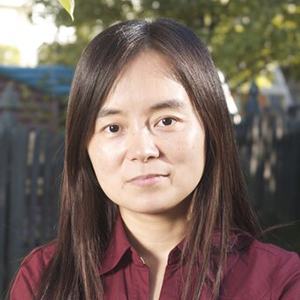Skillful prediction and projection of tropical cyclone (TC) activity helps hurricane preparedness and mitigation, especially when the storm impacts are expected to worsen with increasing sea level and water vapor capacity in a warming climate.
Slowly varying tropical oceanic conditions have been regarded as a primary source of predictability for TC activity, but recent studies suggest that TC activity is also subject to impacts of extratropical processes.

We show that summertime stationary waves in the Northern Hemisphere, including tropical upper-tropospheric troughs, integrate tropical and extratropical impacts into a unified framework and provide a hemispheric perspective that helps in understanding the variability and predictability of TC activity over the North Atlantic and North Pacific. The application of this framework to tropical cyclone future projection is also explored.
Dr. Zhuo Wang is a professor in the Department of Climate, Meteorology & Atmospheric Sciences (CLiMAS) at University of Illinois at Urbana-Champaign. She currently serves as the chief editor for the Journal of Atmospheric Sciences and co-chair of the WMO Working Group on Tropical Meteorology Research (TMR). She has previously served as the chair of the American Meteorological Society (AMS) Committee on Tropical Meteorology and Tropical Cyclones, and as co-chair of the US CLIVAR PPAI panel. Her research mainly focuses on tropical cyclones, extratropical cyclones, climate dynamics, and the subseasonal to decadal prediction and predictability of extreme weather and climate.